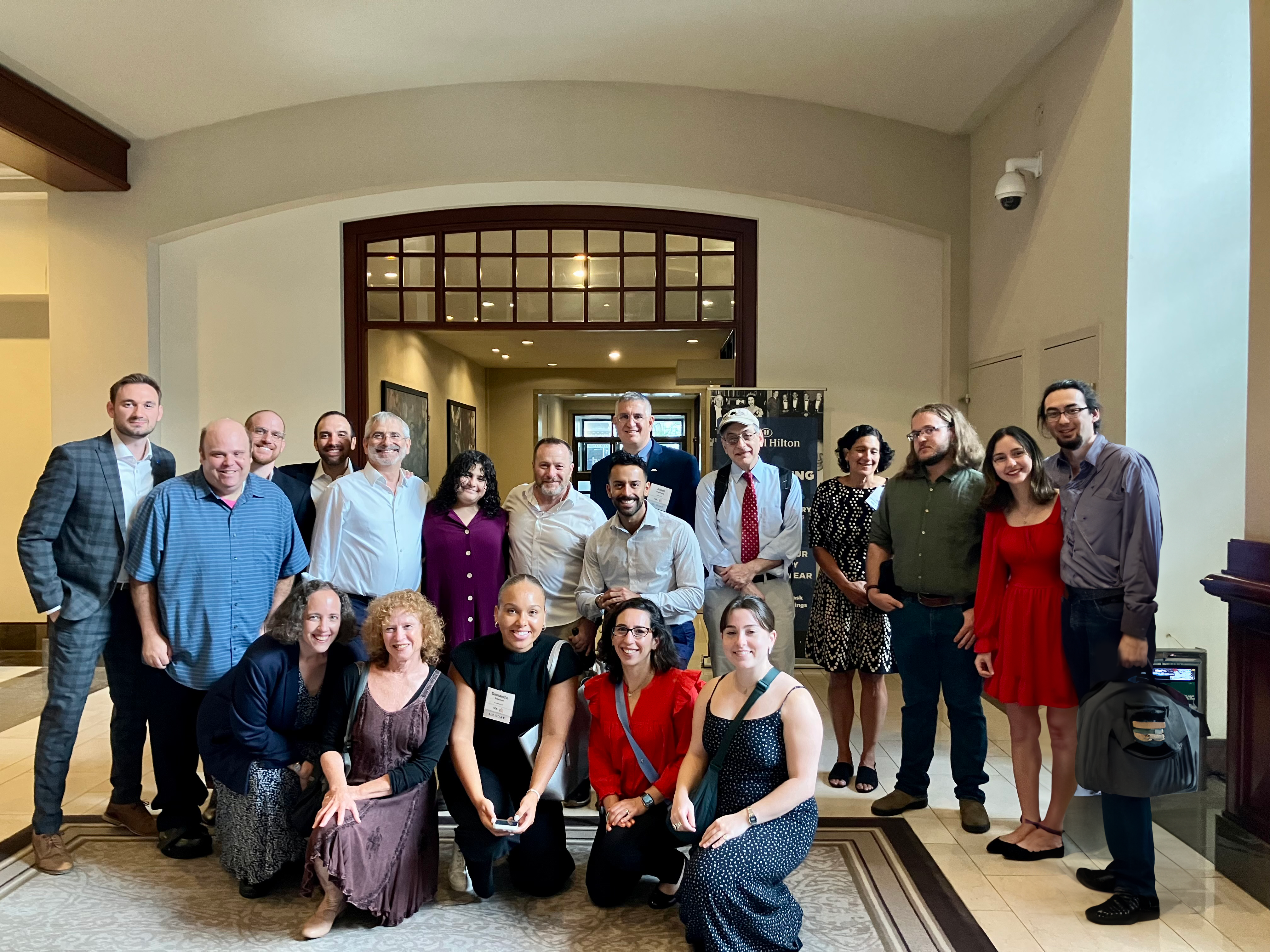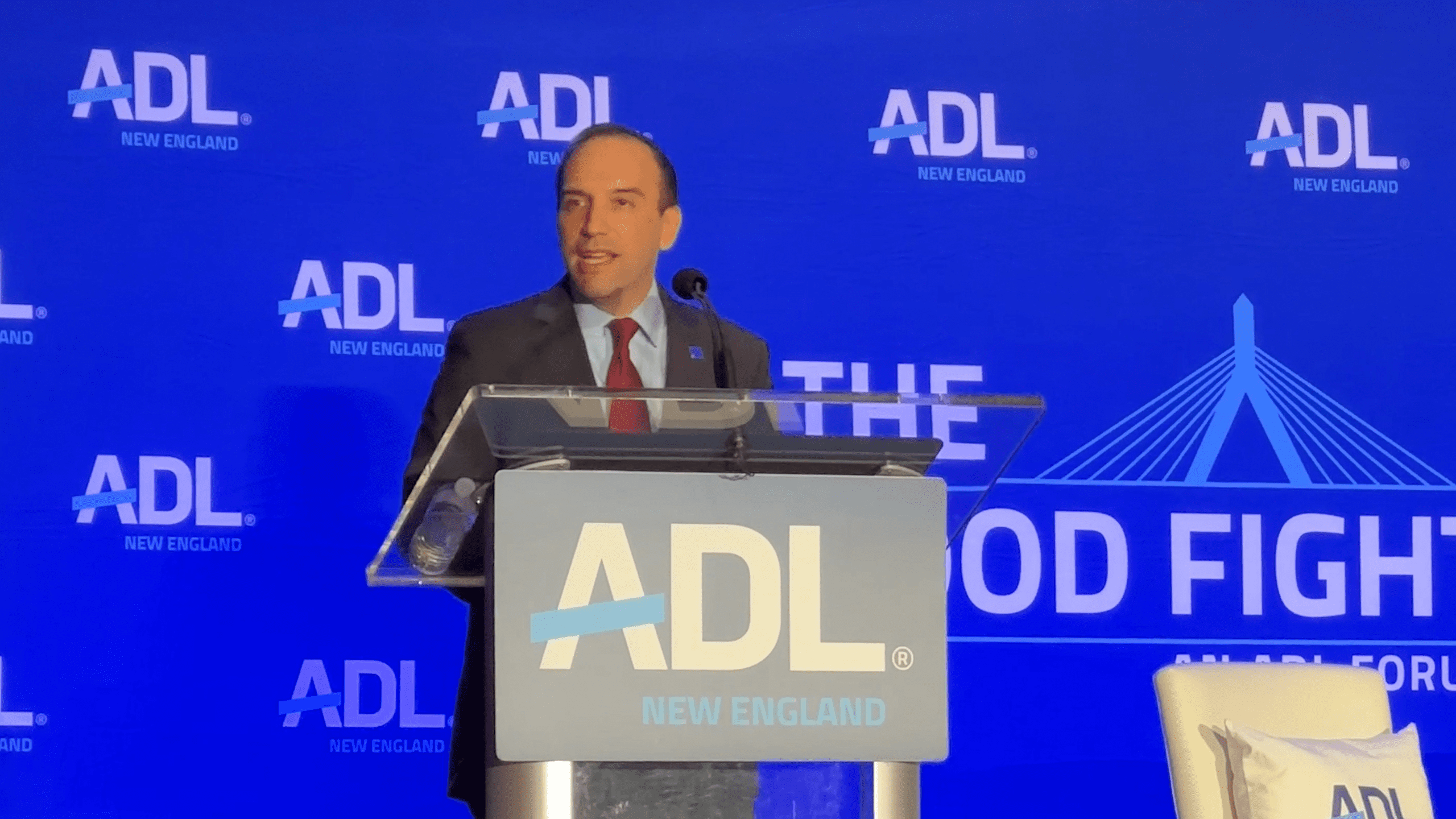By Rebeccah Lipson, Repair the World Fellow, Boston
This summer marked a significant turning point in my journey as I embarked on a new chapter with Repair the World, an organization that mobilizes Jews and their communities to actively pursue a more just world. Little did I know that this commitment would soon lead me and my dedicated team to a powerful moment of action: the 60th anniversary March on Washington.
As Rabbi Abraham Joshua Heschel once wisely noted, “The opposite of good is not evil; the opposite of good is indifference.” At Repair the World, we understand that our purpose goes beyond passive observation of the world’s injustices. It’s about stepping forward, taking action, and making a tangible impact. This philosophy, encapsulated by Rabbi Heschel’s words, has shaped my summer and propelled me toward the heart of a movement that echoes with historical significance and calls for a united stand against all forms of discrimination and injustice.
As the summer unfolded, my team and I grappled with the notion of responsibility. We spent hours at cafes, synagogues, and parks discussing the various forms of injustices Boston is facing. We recognized that we, as Jews, have a unique obligation to address and combat xenophobia in all its manifestations. The decision to journey from our base in Boston to Washington, D.C., wasn’t just a logistical one; it was an unequivocal statement of our commitment. We wanted to take what we learned and put it into action. This trip to D.C. was a manifestation of the Jewish value of na’aseh v’nishma, action and learning. We firmly believe that when given an opportunity to fight against forms of xenophobia, it is our duty to seize it.
The 60th anniversary March on Washington holds a special resonance for me, not only due to its historical significance but also because of the values it represents. Dr. Martin Luther King’s legacy reverberates through the decades, reminding us that the struggle for justice and equality is ongoing. As I stand on the precipice of this march, I can’t help but reflect on the parallels between the civil rights movement and the issues we continue to grapple with today, such as food insecurity and housing injustice that brown and Black Bostonians continue to face today.
The decision to march alongside CJP, in collaboration with ADL, speaks volumes about our collective determination. It’s a testament to the power of solidarity, achdoot, in the face of adversity. Our call to serve goes beyond the march. Our call to serve enables us to take direct action in the name of tzedek, justice. The march itself is a continuation of a journey that began 60 years ago, and we’re here to carry forward the torch of progress and equality.
Our dedication isn’t merely symbolic; it’s a reflection of our unwavering belief that combating xenophobia, racism, and discrimination is central to our identity as Jews. We’ve faced our own historical struggles, and that shared experience binds us to the broader tapestry of individuals who have fought and continue to fight for their rights. Just as we would expect others to stand with us against antisemitism, we recognize the imperative of standing with those who face other kinds of hate.
In a world where divisiveness can seem all-encompassing, this march becomes a beacon of hope. It’s a space where individuals from different backgrounds come together with a shared purpose: to reshape the future into one that’s inclusive, just, and equitable. It’s a moment to amplify the voices of those who have been marginalized and silenced, and to challenge the structures that perpetuate inequality.
As we prepare to gather for Shabbat dinner with members of the King family and leaders of the march, the significance of our presence becomes even more palpable. It’s not just about showing up; it’s about actively participating in a service movement that’s greater than ourselves to change the world for the better.
I’m humbled by the journey that brought me here and excited about the journey that lies ahead. This summer, Repair the World gave me purpose, and, like Jewish service, this march gives me another opportunity to turn that purpose into action.
As Rabbi Heschel’s words remind us, our refusal to be indifferent is the spark that ignites lasting change.





